Pat Riley is one of the greatest coaches in NBA history. Here is what leaders, coaches, and players can learn about attaining greatness from Riley’s revered book on leadership, The Winner Within.
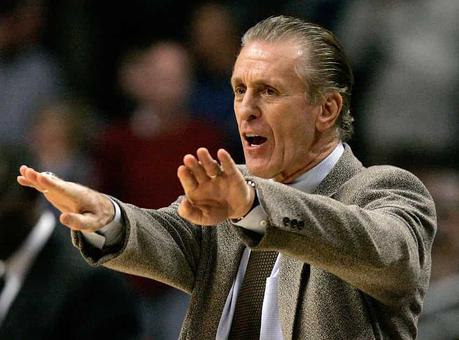 Credit: Alamy Stock
Credit: Alamy Stock
Pat Riley is one of the coaching legends of professional basketball. He coached the Showtime era Los Angeles Lakers to four NBA titles during the 1980s and a fifth with the Miami Heat in 2006. He has won titles as a player, head coach, assistant coach, and as an executive.
His book, The Winner Within, encapsulates his coaching philosophy. Published in 1993 while Riley was head coach of the New York Knicks, The Winner Within is a leadership book for coaches, business executives, and athletes.
Well-written, and with a friendly yet authoritative style, Riley illustrates his leadership and coaching philosophy through a series of examples, both from the business world and from his coaching and playing days.
The Winner Within is an excellent resource for anyone who is seeking to tease out more excellence and mastery from their lives, whether it’s in their personal relationships, on the basketball court, or in the boardroom.
Here are some of my favorite takeaways from Riley’s coaching and leadership classic, The Winner Within.
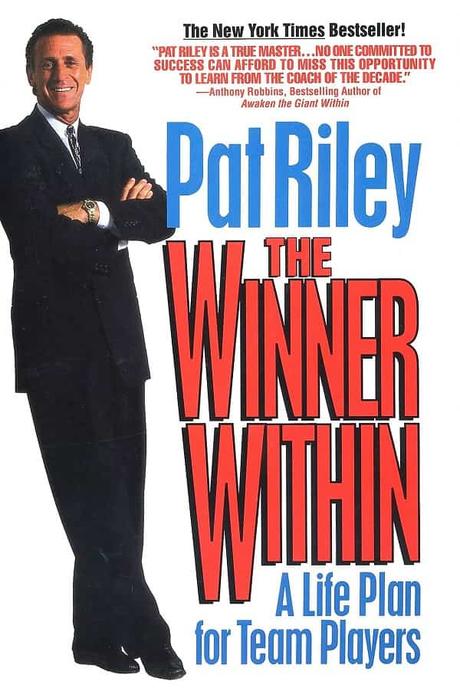
Where to Buy The Winner Within by Pat Riley
Teamwork is everything.
- “My driving belief is this: great teamwork is the only way to reach our ultimate moments, to create the breakthroughs that define our careers, to fulfill our lives with a sense of lasting significance.”
The role of teamwork extends far beyond the court or field. Whether you are trying to achieve excellence in sport, business, or in your personal life, teamwork is at the core of organizational success.
- “Family life is a central team experience.”
Although teamwork can be easy to see or feel, it is hard to mechanically describe.
- “Teamwork isn’t simple… If can be a frustratingly elusive commodity.”
Teamwork requires consistent and sustained hard work:
- “Teamwork doesn’t appear magically just because someone mouths the words. It doesn’t thrive just because of the presence of talent or ambition. It doesn’t flourish simply because a team has tasted success.”
High-performance teams and team members require innocence.
- “Being innocent means understanding territoriality and knowing that each player has his space—and then putting it aside for the good of the team.”
Suppressing territorial ego is what leads to a cohesive team. Although this can seem like a sacrificial choice, as though you are giving up what you expect and believe to be yours, in the end you are gaining.
- “It’s a positive choice. You make it for your own good, too—because trying too hard to be clever in defending your turf makes for short-term thinking.”
Innocence takes time and experience to be effective. And innocence is not the same as naivety.
- “And it’s more than just innocence. It’s innocence with experience. Only experienced innocence can combat the cynicism and pessimism so rampant these days.”
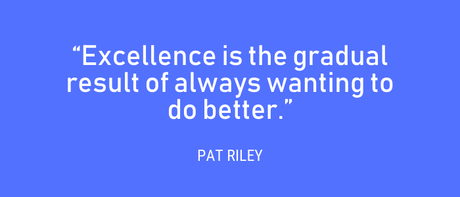
Winning happens when you help everyone else play at their best.
Exceptional leaders go out of their way to elevate the performance around them. They are willing to step back from the spotlight, step aside their ego, and see the grander vision and possibility in helping others excel instead of focusing solely on their own performance.
- “Magic Johnson believed that if he helped everyone around him get what they wanted out of the game, then winning would always follow.”
Exceptional leaders work with the strengths of the team members and adapt their own approach, playing to maximize what team members do well.
- “Magic was an avid student of all the styles of basketball. Instead of crushing his teammates under his own greatness, he studied their styles and figured out how he, as the man controlling the movement of the ball, could help get the most out of the abilities they had. He dealt to their strengths.”
Magic understood that by making elevating the game of others the priority, his teammates would get inspired, overall performance would go up.
- “Through this unselfishness he would enhance the skills of others. He would help them experience the same kind of kinetic, contagious joy from playing that he always felt. Then they’d be motivated to be their best. The team would experience both winning and success at the same time.”
“The Disease of Me”
Although the road up the mountain is tough, winning brings its own set of challenges. Typically, it’s the ego of the player taking center stage, opening the door for The Disease of Me.
- “Unless you learn to manage the aftereffects of winning, the forces that led your team to the top will turn around and destroy you.”
- “When the Disease of Me afflicts the strongest members of a team, or even its coaches, they develop an overpowering belief in their own importance. Their actions virtually shout the claim, ‘I’m the one.’”
- “When the Disease of Me infects the weakest members of a team, the people who create about 20 percent of the team’s effectiveness feel shut out from the spotlight. They come to believe they’re really deserving of 80 percent of the rewards, and develop a tunnel-visioned fixation on upping their share of the material take.”
- “The greater a single teammate’s success, the stronger the resentment can be from the weakest 20 percent.”
- “The team on the court is the team of the moment. When the first string snaps, motivate the players you have, rather than moaning about the players you don’t have. You’ll never rouse The Winner Within by making people feel they’re only a fill-in for side-lined greatness.”
While the symptoms of Disease of Me are exemplified in Riley’s Showtime Lakers of 1980-1981, where the team fell apart after winning an NBA title the year before, the symptoms hold true when it comes to business and relationships.
Here is what the Disease of Me looks like:
- “Inexperience in dealing with sudden success.”
- “Chronic feelings of underappreciation.”
- “Paranoia over being cheated out of one’s rightful share.”
- “Resentment against the competence of partners.”
- “Personal effort mustered solely to outshine a teammate.”
- “A leadership vacuum resulting from the formation of cliques and rivalries.”
- “Feelings of frustration even when the team performs successfully.”
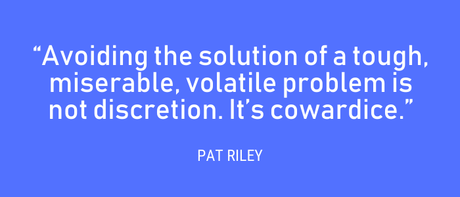
You should always be learning.
Win, lose, on the bench, or starting, become a master of your craft even when you aren’t the center of attention.
Improvement happens in the countless moments between the bright lights—choosing to make the most of them is an attitude and a choice you have to make.
- “It’s strictly attitude that lets you learn.”
The final hurdle to success is complacency.
When you are doing just well enough that you feel like you can coast, or that you have done enough work that you feel satisfied.
- “Complacency is the Success Disease: it takes root when you’re feeling good about who you are and what you’ve achieved.”
- “Avoiding the solution of a tough, miserable, volatile problem is not discretion. It’s cowardice.”
Entitlement and complacency creeps in the door the moment success begins to happen.
- “When a milestone is conquered, the subtle erosion called entitlement begins its consuming grind. The team regards its greatness as a trait and a right. Halfhearted effort becomes habit and saps a champion’s strength.”
- “That’s why a wise worry is good: not a paralyzing worry, but a healthy awareness of realist. It roots out budding self-satisfaction.”
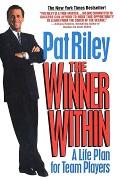
Paperback | Hardcover
More Stuff Like This
Best Sport Psychology Books: Conquer Your Mind, Conquer the Competition. Want to sharpen your knowledge of sport psychology? Here are some excellent resources for anyone looking to level up their sport psych knowledge.
Lead Like a Champion: Essential Reading for Coaches. Excellent coaches are not only excellent teachers, they have systems and routines that produce excellence and “natural” leadership. Here is a selection of the best books for leadership-minded coaches.
